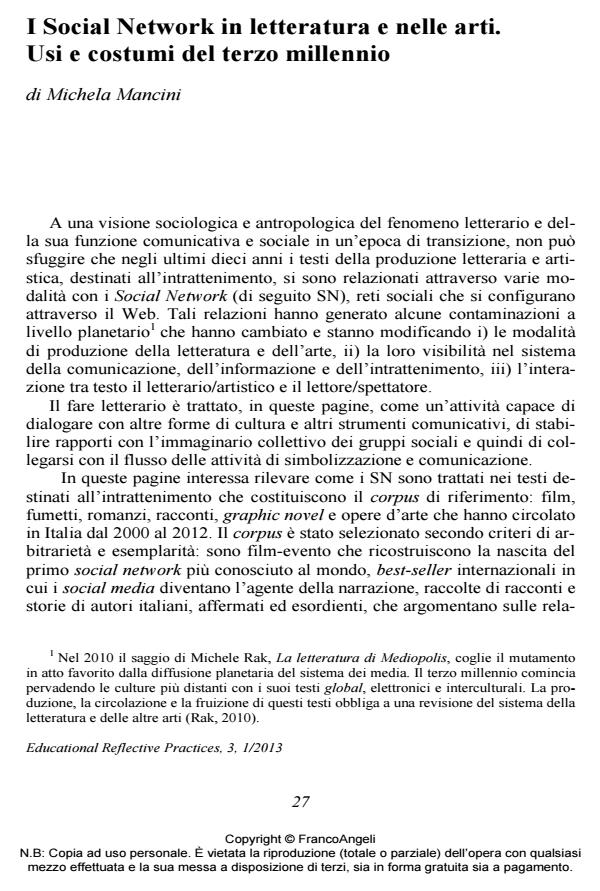I Social Network in letteratura e nelle arti. Usi e costumi del terzo millennio
Titolo Rivista EDUCATIONAL REFLECTIVE PRACTICES
Autori/Curatori Michele Mancini
Anno di pubblicazione 2013 Fascicolo 2013/1
Lingua Inglese Numero pagine 11 P. 27-37 Dimensione file 169 KB
DOI 10.3280/ERP2013-001003
Il DOI è il codice a barre della proprietà intellettuale: per saperne di più
clicca qui
Qui sotto puoi vedere in anteprima la prima pagina di questo articolo.
Se questo articolo ti interessa, lo puoi acquistare (e scaricare in formato pdf) seguendo le facili indicazioni per acquistare il download credit. Acquista Download Credits per scaricare questo Articolo in formato PDF

FrancoAngeli è membro della Publishers International Linking Association, Inc (PILA), associazione indipendente e non profit per facilitare (attraverso i servizi tecnologici implementati da CrossRef.org) l’accesso degli studiosi ai contenuti digitali nelle pubblicazioni professionali e scientifiche.
This essay describes how social networks (SN) are tackled in texts dedicated to entertainment, which represent the reference corpus: movies, comics, novels, short narratives and artistic masterpieces that have circulated in Italy from 2000 to 2010. Throughout a multidisciplinary approach, which sets its premises in literary theory and criticism, fictional texts are considered as devices able to dialogue with other cultural texts and with other communication tools, to establish relationships with the public imagery, and to connect with the general flow of activities related to signification and symbolization. Main argument is that the analysis of mentioned corpus showed how SN configure an icon documenting new behavioural models typical of certain third millennium cultures, for they represent and establish new ways of social interaction interesting for both humanities (literature, arts) specialists and everyone committed with information, communication, education.
Michele Mancini, I Social Network in letteratura e nelle arti. Usi e costumi del terzo millennio in "EDUCATIONAL REFLECTIVE PRACTICES" 1/2013, pp 27-37, DOI: 10.3280/ERP2013-001003